This Saturday, 18 July, Muzsikás take the stage at the Fonó with acclaimed young singer, Hanga Kacsó. Ordinarily, this would be a gig like so many others but the last time Hungary’s folk legends played Budapest was the Christmas show at the Müpa Palace of Arts at the end of 2019.
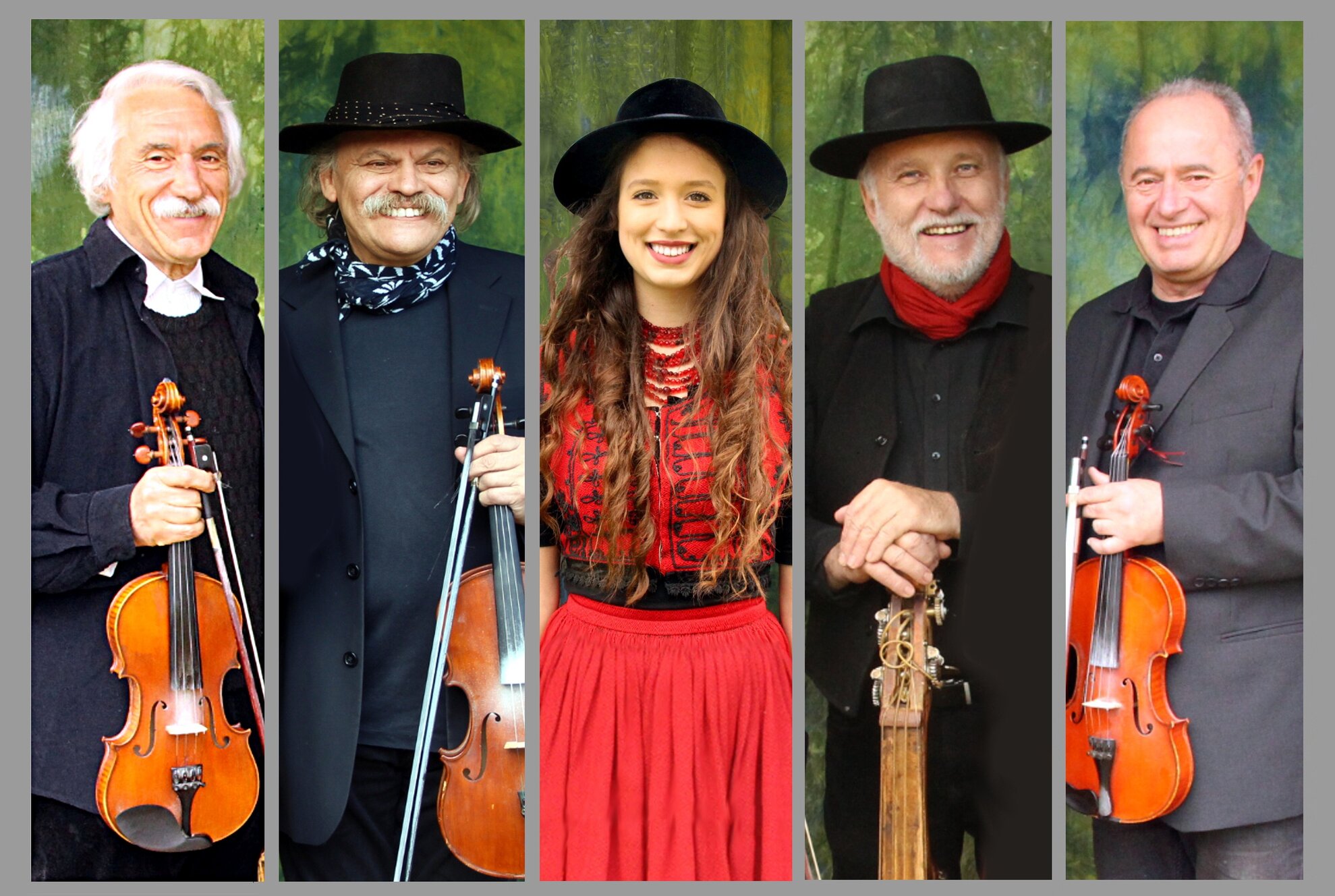
Not that the group has been frantically rehearsing this week. “No risk, no fun!” laughs bass player Dániel Hamar when we catch up with him, relaxing at his riverside family house and garden in Dunaföldvár.
Hamar does regret, however, the cancellation of a major UK tour this spring, in particular the Whittington Festival, which would have seen the group perform over two days, reviving a lost musical world unearthed by Bartók a century ago.
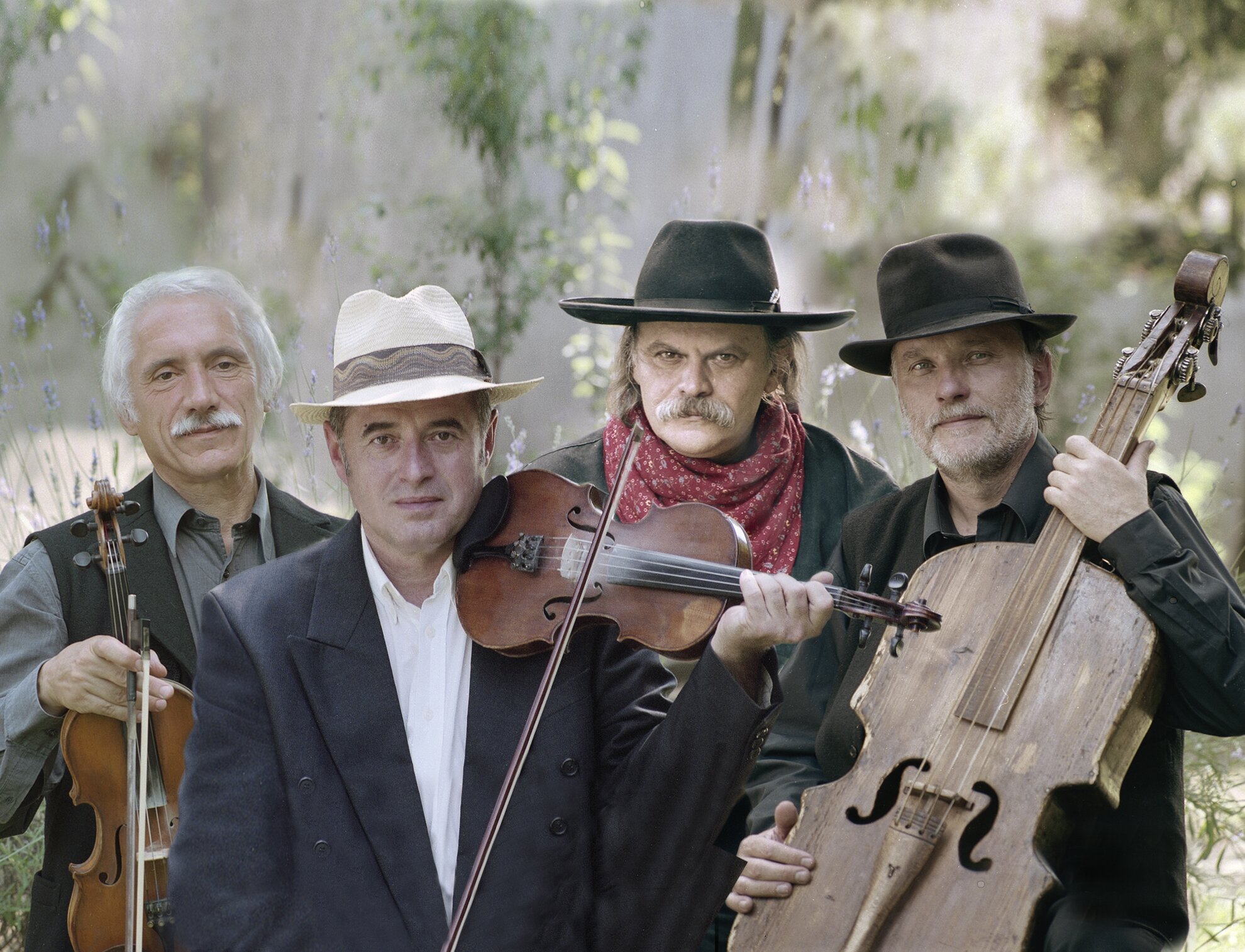
It’s strange to think that in nearly half a century of playing music together – in smoky pubs around Socialist Hungary, across Ceaușescu’s Romania, at Carnegie Hall in New York and London’s Royal Festival Hall – Muzsikás have never gone so long without striking up a few tunes when gathered in the same room. It’s a musical odyssey that can be traced back to village weddings in Transylvania, in the early 1970s.
“We were very young, still at school,” remembers Hamar. “We fell in love with this music. Like Bartók and Kodály 70 years before, we trekked across Transylvania and found old folk musicians still playing in the same original, authentic way. We learned from them.” Far away from urban development, and beyond Hungary’s borders after 1920, isolated Hungarian communities had kept their identities and their culture.
From pubs to stage
“This music had disappeared from Hungary 50 years before and the rest of Europe, maybe 200 years before. We started playing in bars and little clubs. The change came when we stopped playing in the corner of the room for people to dance to, and stepped onto the stage.”
Back then, Muzsikás were a trio, Hamar and violinist Mihály Sipos the original members still in the band today. Not only did they bring the sounds of rural Hungary to the cities, Muzsikás were everything that state-approved, fake folk wasn’t – hackneyed, stiff and safe. Locals could just let themselves go. Dance houses, táncház, became not just entertainment, but a movement. “Essentially, this is the music of community, played at weddings and funerals,” says Hamar. “But we had to adapt it and arrange it for the stage.”
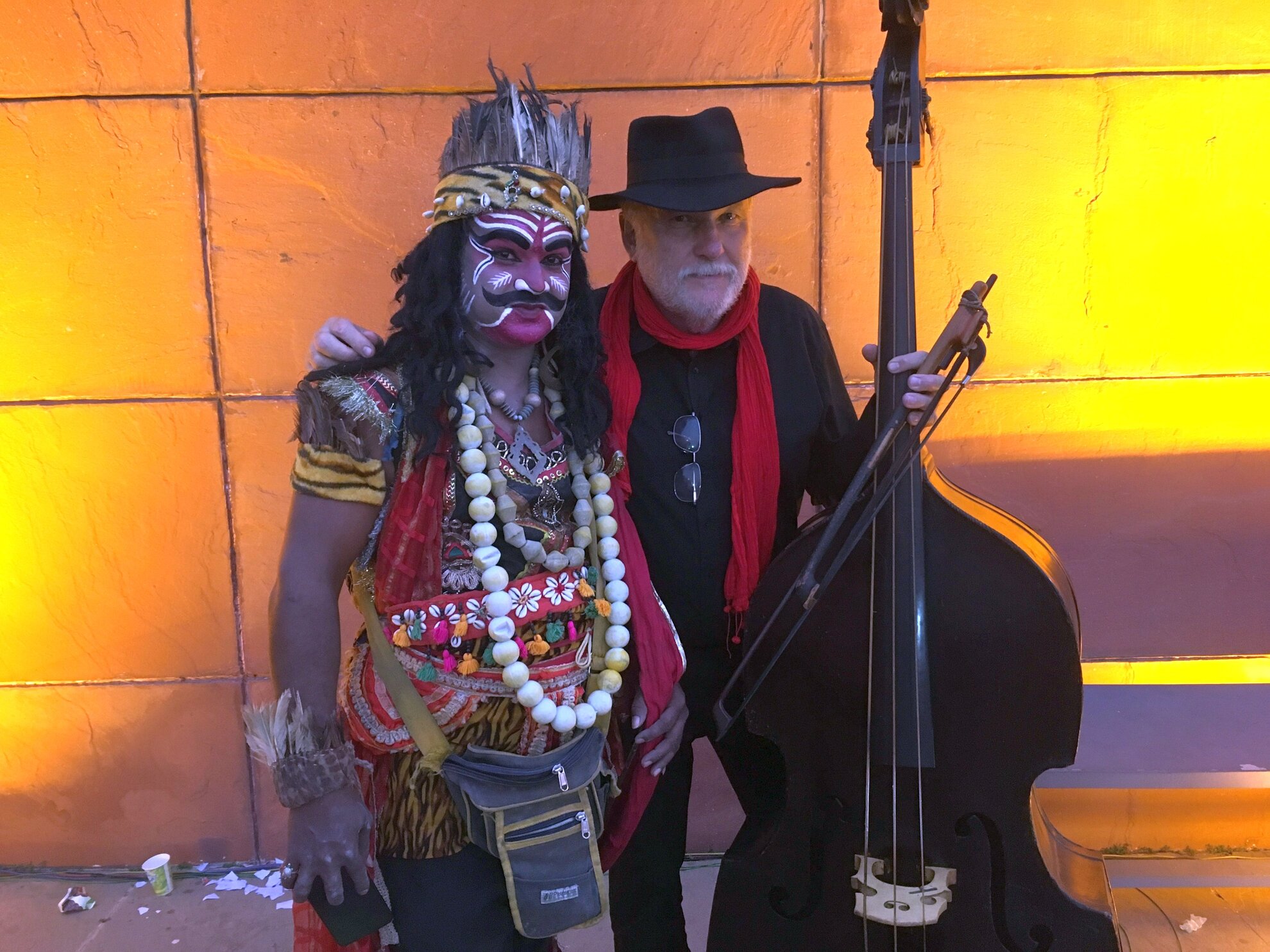
Once the rest of the world picked up on it – not least Anthony Minghella, who used the Muzsikás version of Szerelem, Szerelem in his Oscar-winning film The English Patient – Muzsikás became Hungary’s musical ambassadors. Sought after across the world, they could adapt their set to resonate with their audience, whether to strike a more traditional tone, a classical or a rowdy one.
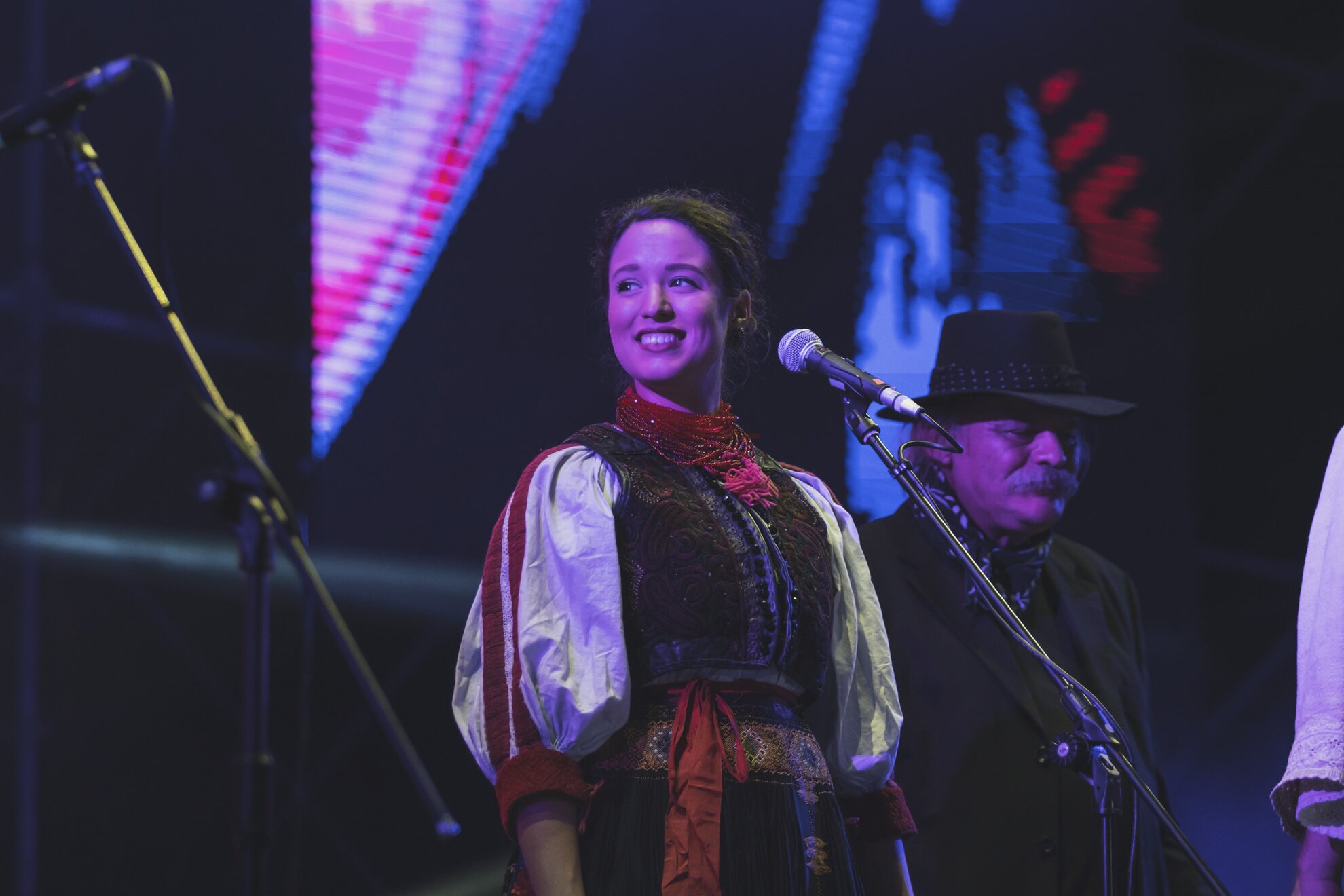
Saturday night will be no different. Hamar may sound blasé about just rocking up and playing the Fonó but he and Sipos have 47 years – minus these last last four months, of course – under their belts.
“We weren’t able to rehearse but so much of what we do is through interaction,” says Hamar. “I just have to look at him and I know where the next melody is going. It’s never the same set twice. We play for the moment. We judge it by the audience, whether to take it slow or speed things up. This is how we learned it from the old guys back in Transylvania.”
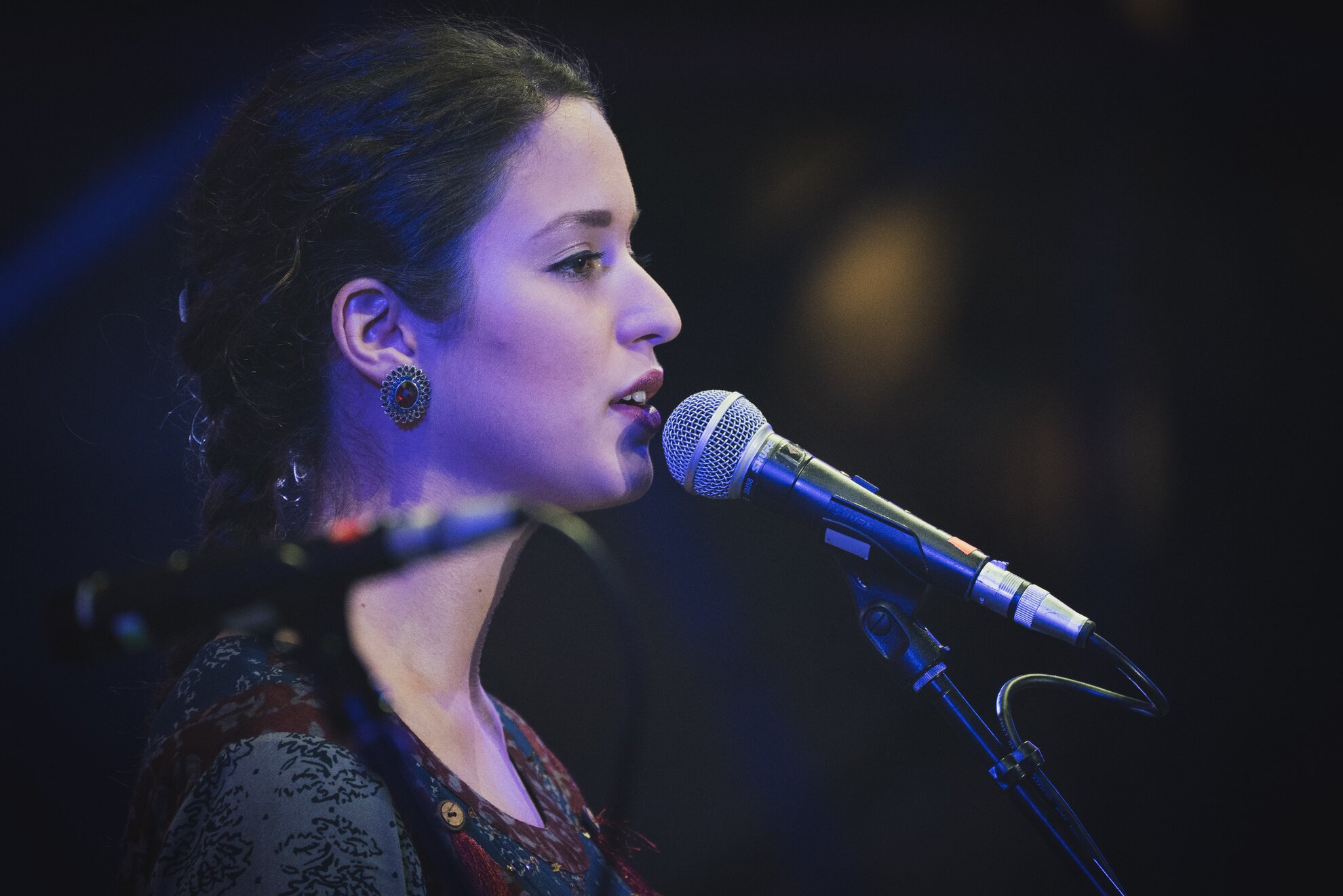
Hamar has every faith in the sound engineer at Fonó – “a very good man, he’s been there for ages” – and is quick to praise singer Hanga Kacsó. Appearing on a popular folk-music talent show on Hungarian TV when she had just turned 16, then won it at 18, Kacsó has since performed across North America with Muzsikás. A daughter of Transylvanian parents, Kacsó was visiting relatives in Romania when new border restrictions were recently announced in Hungary and had to change her flight to make it here for Saturday’s show.
“Music is a basic human need,” says Hamar. “Every human being needs music. It’s something that transcends speech. It touches the deepest places in the soul.”
Muzsikás & Hanga Kacsó at Fonó, 18 July, 8pm
The concert prefaces a whole month of performances, with Dresch and Zuboly among the upcoming acts. See full agenda here
District XI. Sztregova utca 3
Trams 1, 17 & 41 to Etele út/Fehérvári út
Tickets (1,500 HUF) here




